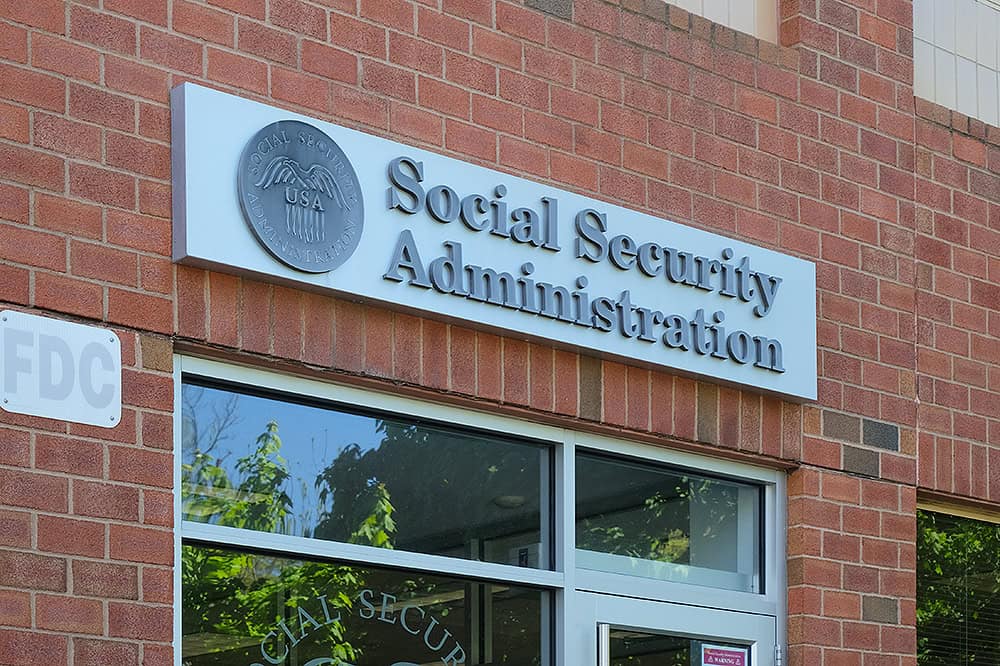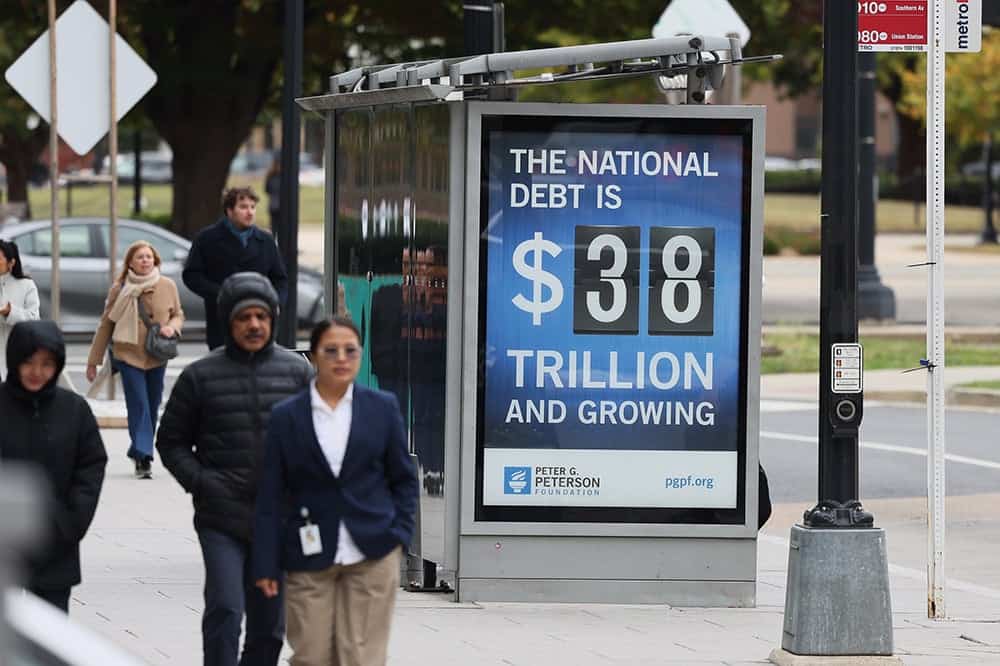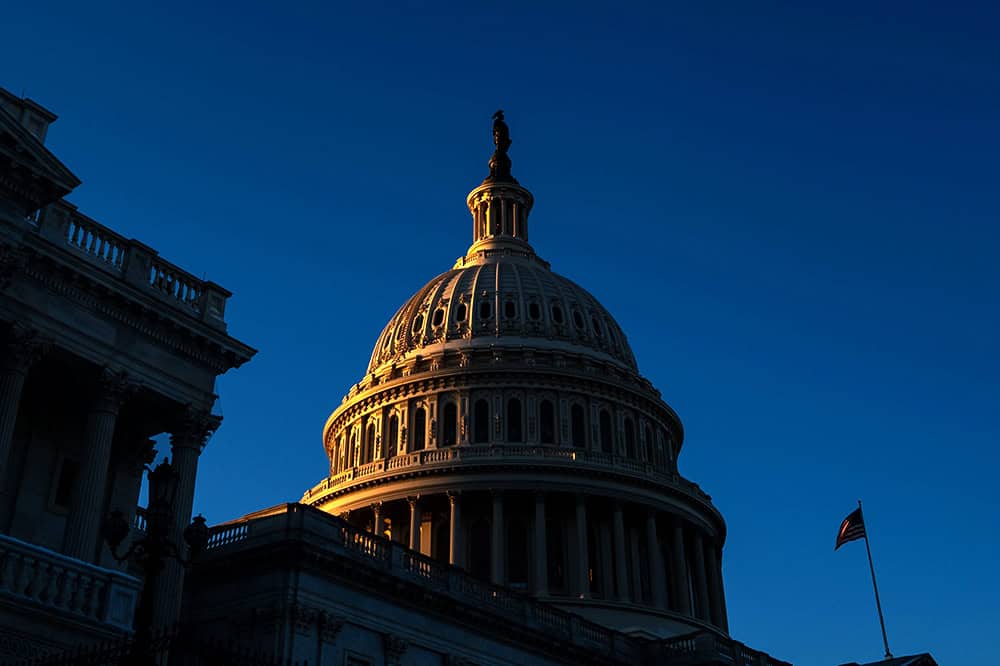As Candidates Make their Case to Voters, Rising National Debt Remains Key Concern
The September 2020 Fiscal Confidence Index, Modeled after the Consumer Confidence Index, is 53 (100 is Neutral)
NEW YORK (September 29, 2020) — With the election just over a month away, voters remain deeply concerned about America’s worsening fiscal outlook, according to the September Fiscal Confidence Index, modeled after the Consumer Confidence Index, is 53 (100 is neutral), indicating that addressing the high and rising national debt is a key concern for Americans.
Eight in 10 voters (81%) say they want the president and Congress to spend more time addressing the nearly $27 trillion national debt, and 75% say their level of concern has increased over the last few years. Calls for action span party lines, including 65% of Democrats, 67% of independents, and 76% of Republicans who agree that the debt should be a top-three priority for the president and Congress.
“While the pandemic remains the top priority, voters believe that America’s deteriorating fiscal situation is also a key issue for our future,” said Michael A. Peterson, CEO of the Peterson Foundation. “There is no doubt that the next president and Congress will face a range of difficult budget choices, with our national debt likely to eclipse $27 trillion this week and growing rapidly toward an all-time high as a share of GDP. Voters understand that once we have defeated this virus, we need to address our fiscal outlook in order to help build a strong and stable economic future.”
The Fiscal Confidence Index measures public opinion about the national debt by asking six questions in three key areas:
- CONCERN: Level of concern and views about the direction of the national debt.
- PRIORITY: How high a priority addressing the debt should be for elected leaders.
- EXPECTATIONS: Expectations about whether the debt situation will get better or worse in the next few years.
The survey results from these three areas are weighted equally and averaged to produce the Fiscal Confidence Index value. The Fiscal Confidence Index, like the Consumer Confidence Index, is indexed on a scale of 0 to 200, with a neutral midpoint of 100. A reading above 100 indicates positive sentiment. A reading below 100 indicates negative sentiment.
Fiscal Confidence Index Key Data Points:
- The September 2020 Fiscal Confidence Index value is 53. (The August value was 47. The July value was 46.)
- The current Fiscal Confidence Index score for CONCERN about the debt is 45, indicating deep concern about the debt. The score for debt as a PRIORITY that leaders must address is 30, indicating that Americans want elected leaders to make addressing long-term debt a high priority. The score for EXPECTATIONS about progress on the debt is 82. The Fiscal Confidence Index is the average of these three sub-category scores.
- For a description of the complete methodology, see the Appendix below.
The Peter G. Peterson Foundation commissioned this poll by the Global Strategy Group and North Star Opinion Research to survey public opinion on the national debt. The online poll included 1,007 registered voters nationwide, surveyed between September 21, 2020 and September 24, 2020. The poll has a margin of error of +/- 3.1%. The poll examined voters’ opinions on the national debt, political leadership, and America’s fiscal and economic health.
Detailed poll results can be found online at: www.pgpf.org/FiscalConfidenceIndex.
About the Peter G. Peterson Foundation
The Peter G. Peterson Foundation is a nonprofit, nonpartisan organization that is dedicated to increasing public awareness of the nature and urgency of key fiscal challenges threatening America’s future, and to accelerating action on them. To address these challenges successfully, we work to bring Americans together to find and implement sensible, long-term solutions that transcend age, party lines and ideological divides in order to achieve real results. To learn more, please visit www.pgpf.org.
APPENDIX: Fiscal Confidence Index Methodology and Questions
- The Fiscal Confidence Index is released monthly by the Peter G. Peterson Foundation.
- The Fiscal Confidence Index value is based on six questions in three categories.
- As is done with the Consumer Confidence Index, the first step in calculating the Fiscal Confidence Index is determining the “Relative Value” for each question. This calculation is made by taking the positive response for each question and dividing it by the sum of the positive and negative responses. Each question was asked on a four-point scale, and answers were weighted according to intensity, with the strongest responses counting twice as much as the middle responses (“much” better or worse answers count twice as heavily as “somewhat” better or worse answers).
- The scores for the Concern, Priority, and Expectations categories are determined by averaging the scores derived from the two questions in each category.
- The Fiscal Confidence Index value is converted from the Relative Value to place it on a scale on which 100 indicates equal positive and negative sentiment, while values below 100 indicate negative sentiment and values above 100 indicate positive sentiment.
- The questions are as follows:
| CONCERN (45) | |||
|---|---|---|---|
| Thinking about our national debt over the last few years, would you say your level of concern has increased or decreased? ◊ Is that a lot or just a little? |
September 2020 | August 2020 | July 2020 |
| Increased a lot | 44% | 47% | 48% |
| Increased a little | 31% | 30% | 31% |
| Decreased a little | 5% | 7% | 7% |
| Decreased a lot | 5% | 5% | 4% |
| (No change) | 11% | 9% | 7% |
| (Don’t Know/Refused) | 3% | 3% | 3% |
| INCREASED (NET) | 75% | 77% | 80% |
| DECREASED (NET) | 10% | 12% | 10% |
| When it comes to addressing our national debt, would you say things in the United States are heading in the right direction or do you think things are off on the wrong track? ◊ Do you feel that way strongly or just somewhat? |
September 2020 | August 2020 | July 2020 |
| Right direction-Strongly | 14% | 12% | 11% |
| Right direction-Somewhat | 20% | 17% | 19% |
| Wrong track-Somewhat | 27% | 27% | 26% |
| Wrong track-Strongly | 34% | 39% | 40% |
| (Neither/Mixed) | 1 | 1 | 1 |
| (Don’t Know/Refused) | 4% | 3% | 3% |
| RIGHT DIRECTION (NET) | 35% | 29% | 30% |
| WRONG TRACK (NET) | 61% | 66% | 66% |
| PRIORITY (30) | |||
|---|---|---|---|
| Some people say that addressing the national debt should be among the president and Congress’ top 3 priorities. Do you agree or disagree? ◊ Do you feel that way strongly or just somewhat? |
September 2020 | August 2020 | July 2020 |
| Strongly agree | 43% | 43% | 44% |
| Somewhat agree | 27% | 30% | 31% |
| Somewhat disagree | 18% | 16% | 15% |
| Strongly disagree | 6% | 6% | 4% |
| (Don’t Know/Refused) | 7% | 5% | 6% |
| AGREE (NET) | 69% | 73% | 75% |
| DISAGREE (NET) | 23% | 22% | 19% |
| And when it comes to our national debt, do you think it is an issue that the president and Congress should spend more time addressing or less time addressing? ◊ Would you say a lot (more or less) time or just a little? |
September 2020 | August 2020 | July 2020 |
| A lot more time | 44% | 48% | 49% |
| A little more time | 37% | 32% | 32% |
| A little less time | 6% | 8% | 8% |
| A lot less time | 4% | 3% | 4% |
| (The same amount of time) | 4% | 4% | 3% |
| (Don’t Know/Refused) | 6% | 5% | 4% |
| MORE TIME (NET) | 81% | 79% | 81% |
| LESS TIME (NET) | 10% | 11% | 12% |
| EXPECTATIONS (82) | |||
|---|---|---|---|
| And thinking about our national debt over the next few years, do you expect the problem to get better or worse? ◊ Is that much (better or worse) or just somewhat (better or worse)? |
September 2020 | August 2020 | July 2020 |
| Much better | 13% | 11% | 10% |
| Somewhat better | 19% | 19% | 20% |
| Somewhat worse | 31% | 32% | 32% |
| Much worse | 29% | 31% | 35% |
| (No change) | 2% | 1% | 1% |
| (Don’t know/Refused) | 6% | 6% | 3% |
| BETTER (NET) | 32% | 30% | 29% |
| WORSE (NET) | 60% | 63% | 66% |
| And when it comes to our national debt, are you optimistic or pessimistic that the United States will be able to make progress on our national debt over the next few years? ◊ Would you say you are very (optimistic or pessimistic) or just somewhat? |
September 2020 | August 2020 | July 2020 |
| Very optimistic | 11% | 9% | 8% |
| Somewhat optimistic | 37% | 32% | 36% |
| Somewhat pessimistic | 29% | 3% | 33% |
| Very pessimistic | 16% | 16% | 17% |
| (Neither/Mixed) | 2% | 2% | 2% |
| (Don’t Know/Refused) | 5% | 3% | 3% |
| OPTIMISTIC (NET) | 48% | 41% | 45% |
| PESSIMISTIC (NET) | 45% | 54% | 49% |
Further Reading
Lawmakers are Running Out of Time to Fix Social Security
Without reform, Social Security could be depleted as early as 2032, with automatic cuts for beneficiaries.
What Is the National Debt Costing Us?
Programs that millions of Americans depend on and care about may be feeling a squeeze from interest costs on our high and rising national debt.
Interest Costs on the National Debt Are Reaching All-Time Highs
The most recent CBO projections confirm once again that America’s fiscal outlook is on an unsustainable path — increasingly driven by higher interest costs.


